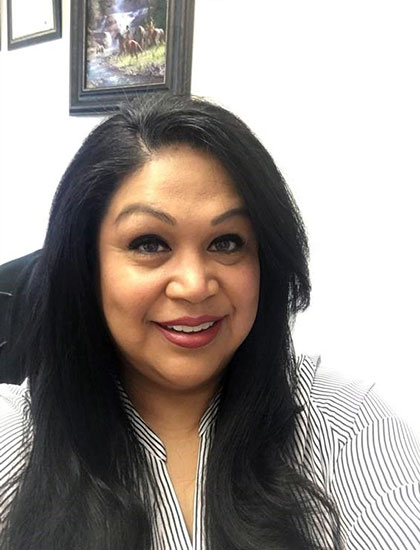By Louis Martin, RCAC Staff Writer
Northern Circle Indian Housing Authority (NCIHA) provides affordable housing services, including housing counseling to Native American households in the rural Ukiah, California area.

Dana Novoa, NCIHA’s sole housing counselor, travels as far as Butte County, a three-hour journey one way, to provide services for Tribal families. She is a housing counselor and provides financial literacy and first-time homebuyer’s workshops for Tribal members. Novoa works with seven different Tribes in four counties; most of them are very remote and sometimes lack basic Wi-Fi. Even Tribal members that NCIHA does not serve, such as the Round Valley Tribes, travel hours to attend her workshops.
Novoa says that even prior to the onset of the COVID-19 pandemic, her program had insufficient funds. But when NCIHA was forced to close its physical office in March, Novoa did not have a home office. As a result, all services that she offered were suspended for several weeks. In May, the offices re-opened and Novoa was eager to return to work. Then the worst happened.
“I didn’t have the technology to work from home. Then we actually had someone in the office contract COVID, and our office shut down again completely,” Novoa says. “I took what I could, trying to work off of an old laptop. I had to sit outside just to get reception to make phone calls to my clients from home.”
Wells Fargo Foundation and Rural Community Assistance Corporation (RCAC) stepped in with a $6,500 grant to Novoa’s department, which she used to outfit a home office. She purchased a proper desktop computer, monitors, cell phone and a printer. She also procured a license for better meeting software and is now developing online workshops and converting as many paper files to electronic ones as possible. Novoa said that her service interruption could have had very real adverse effects on her clients.
“Some of my clients were right there, on the verge of being homeowners. They didn’t want to lose momentum.” ~Dana Novoa
“Some of my clients were right there, on the verge of being homeowners. They didn’t want to lose momentum. I had two families in escrow, so I had to get in contact with their lenders and agents,” Novoa says.
The remaining $1,500 in funds will go back into the program to develop more outreach, counseling and trainings. Novoa is committed to moving the program forward, because without the funding for an additional hire, she carries all of the institutional knowledge and relationships with her.
“I’m so grateful to have these tools to provide housing counseling services and get back to doing this work, which is so important to these families.”
NCIHA administers the Native American Housing Assistance and Self Determination Act (NAHASDA) of 1996 grant funds. NAHASDA is a wide-ranging block grant provided by the U.S. Department of Housing and Urban Development (HUD). As one of several different programs operating under the NAHASDA grant, Novoa said housing counseling routinely battles for funding with other programs that maintain existing housing or provide homeless assistance. Novoa says every program is vital in different ways, but her own is often underfunded. For the past several years, an ongoing RCAC grant for her work in housing counseling has been the difference between providing services or shutting down.
“If we didn’t have the Wells Fargo money through RCAC, my door would be closed. I wouldn’t be able to help anybody. Some of the Tribes can’t even put money into our program,” Novoa says.
